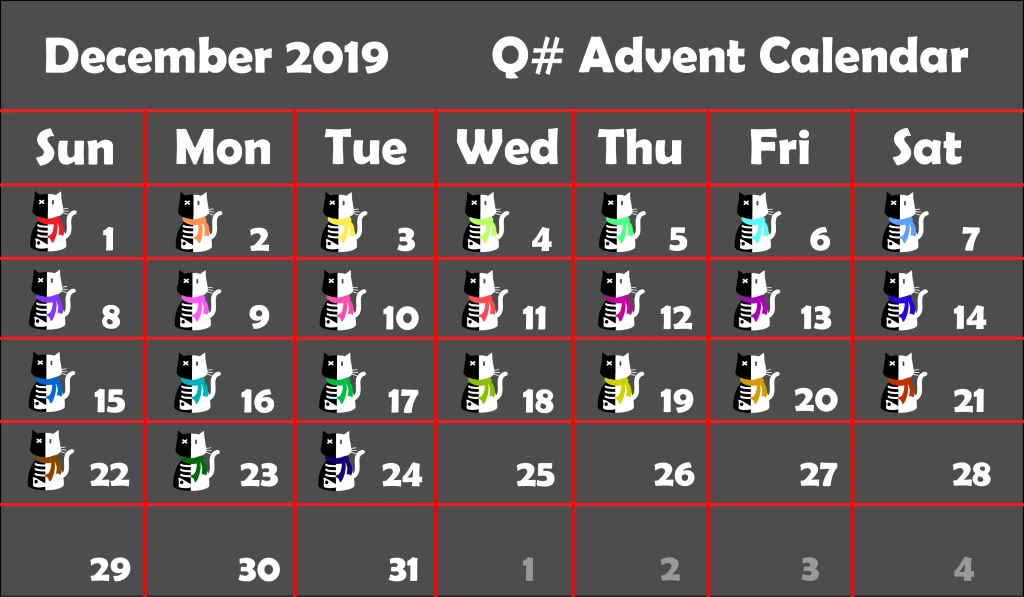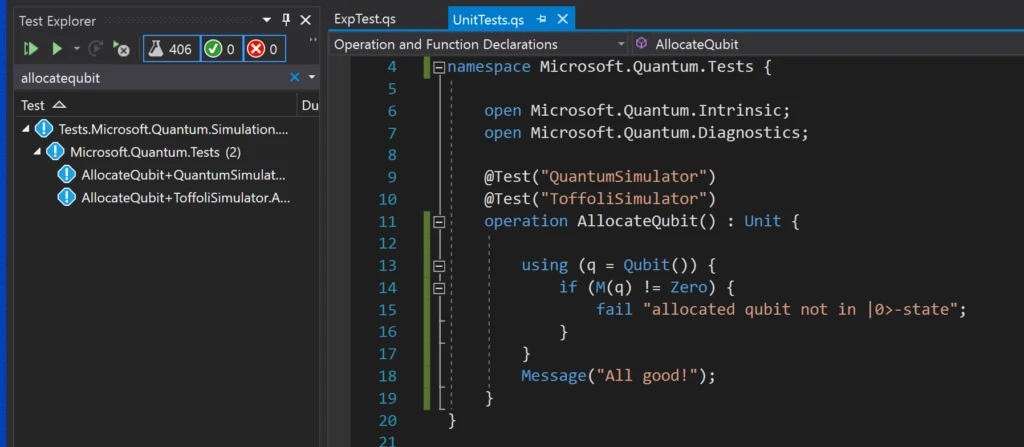It’s December and that means it’s time for the Q# Advent Calendar! Every day leading up to December 24th there will be a new blog post on one of a myriad of topics related to Q#, written by Q# community members, as well as the Microsoft Quantum team.
This is the second annual Q# Advent Calendar (check out the amazing posts from our 2018 Advent Calendar here). There are already some great blog posts published in this year’s calendar, and more are coming up, so don’t forget to check back daily for the newest entry. If you’re interested in contributing a blog post, there are still some open slots. To check out the Q# Advent Calendar, and find out how you can contribute, head over to the Q# Dev Blog.

This month’s Quantum Development Kit (QDK) release adds support for the Test attribute to define unit tests in Q# code. Developers can now execute unit tests directly within Q#. Along with this update, developers can take advantage of full integration with the XUnit testing framework. Keep an eye out for a blog post on this new unit testing functionality in our Q# Advent Calendar.

Along with updates to our unit test functionality, we are excited to offer an improved debugging experience in Visual Studio Code with Q#. The latest update to the Visual Studio Code C# extension by OmniSharp enables developers to leverage breakpoints in their Q# code. It’s now easier than ever to step through and debug your Q# applications. Be sure to install the latest OmniSharp C# Visual Studio Code extension to take advantage of this new functionality.
We have also added the ability to view the stack trace in the case of a Q# program execution error, giving developers more information about when an operation in their Q# code is being executed relative to the rest of the call stack.
For more information about what’s new in this month’s QDK release, check out the Quantum Development Kit December update release notes.
We welcome your feedback, participation, and contributions to the Quantum Development Kit. For more information on how you can get started with contributing to the QDK, check out our guide here.
